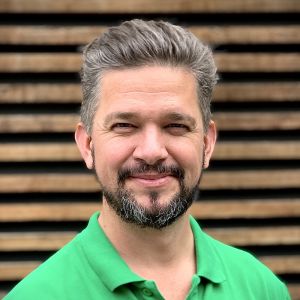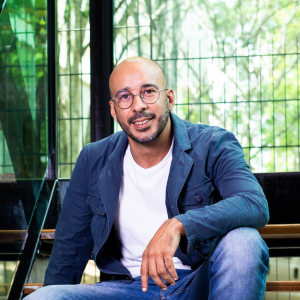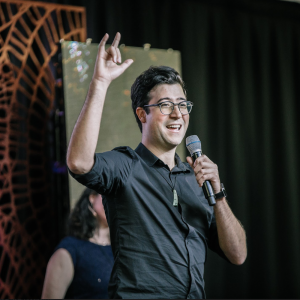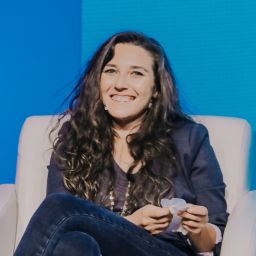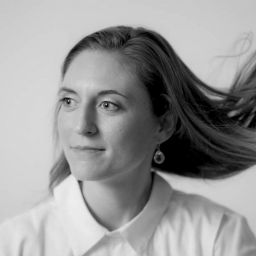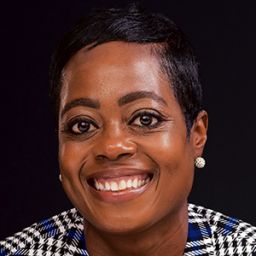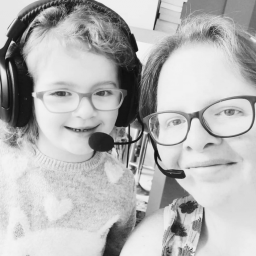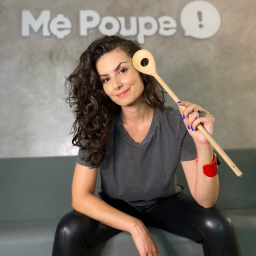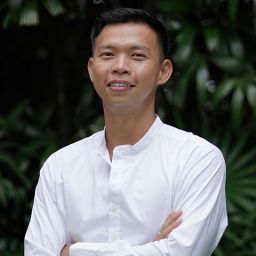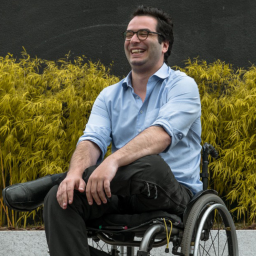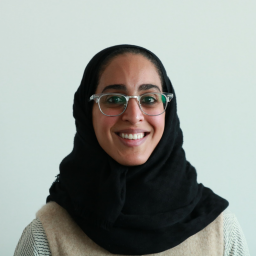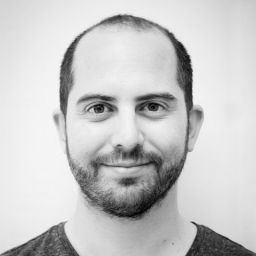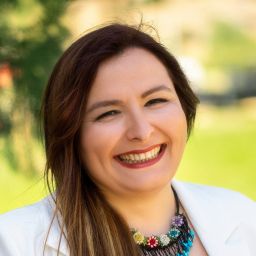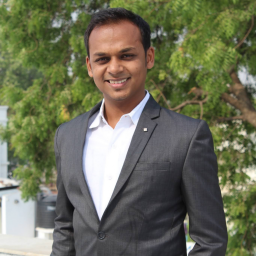Meaningful Business (MB:) Please tell us a bit about your background.
Saba Alzabin (SA:) I was born and raised in Kuwait, and have always been fascinated by nature and life. I was fortunate enough to have spent a significant part of my childhood outdoors. My father was a keen fisherman and falconer when I was growing up, and we often went on trips fishing or exploring the desert. We also had a small farm with chicken, sheep and where we grew vegetables.
I was fascinated by the flora and fauna of land and sea, and found myself building insect and fish hospitals, in a manner that a 6 year old understands of course! I knew from a very young age that I would be doing something related to improving anything that is not healthy or natural.
I started university studying pre-medical studies at New York University with the aim of going to medical school, but fell in love with research when I worked in a lab investigating tumour suppressor genes. I was fascinated with the potential of research and discovery, and by the little we know about our incredible bodies. I decided to switch direction and pursue a PhD in basic medical sciences, focusing on molecular oncology and immunology. I moved to the UK for my post-doctoral career, where I delved into translational research in autoimmune diseases through both academic and industrial lenses before co-founding Nabta.
MB: What led you to start Nabta Health?
SA: It has always saddened me that cutting-edge and evidence-driven scientific research and information, particularly in the life sciences, is scarce in the Middle East. I was fortunate enough to have grown up bi-lingual and been given the chance to study abroad. My advanced education allowed me to seek the most valid information surrounding my own health, and that of my family and friends, but I am a minority. A significant number of women in the Middle East and North Africa (MENA) do not have the facility or knowledge to address their healthcare sufficiently.
Nabta started as the first cycle tracking app available in Arabic in 2017, after my co-founder, Sophie Smith, moved to the UAE and identified a gap in localised fertility tracking apps, as she was thinking about starting a family. With the app evolved a need to provide relevant information to support menstrual health and awareness through social media channels. It became quickly apparent that women from MENA were craving evidence-based information and tools surrounding all areas of their life cycle, from fertility and pregnancy to the menopause and beyond. The digital aspect of the business also gave women the comfort of privacy, as many of their concerns can be culturally sensitive, which often results in delayed diagnosis and poor health outcomes, concomitant with an increase in the economic burden on healthcare systems.
I co-founded the company to establish a localised, culturally relevant evidence-based hub for women from MENA to access validated digital information, tools and devices to address their health concerns and empower them to make correct and timely decisions. There are aspects of healthcare that can be addressed without the need to physically see a doctor or specialist. This has become even more important during the pandemic, where access to traditional healthcare has been significantly compromised. Provision of digital health tools will reduce the burden on the healthcare system. The majority of chronic diseases are preventable. The earlier we act, the better the health outcomes.
MB: What is the problem you are trying to solve?
SA: As a scientist I became aware that scientific and clinical data is inequitable. This is particularly apparent in drug development and the emerging field of personalised medicine. For example, it was not until the mid 90s when the US Food and Drug Administration (FDA), the entity that governs clinical trials and the approval of new medicines, lifted the ban on women of child-bearing potential from participating in early phase research. Before that, most of the drugs that have been approved, and which are still used to this day, have been tested predominantly on men. Why is this important? Biological differences between men and women do not only affect the prevalence, diagnosis, severity, and outcomes of various diseases but also how we respond to drugs.
There are disease states which disproportionally or differentially affect women. For example, breast cancer and urinary incontinence. Others present differently in men and women, for example, cardiovascular disease, where women experience different signs or symptoms, yet with male physiology being the norm of treatment and diagnosis. The second aspect of health inequity comes from the fact that over 75% of clinical research occurs between Europe and the US (the current C-19 pandemic has been an exception to that) and in Caucasian individuals. What this means is that there are geographical and ethnic biases in the way clinical decision making is conducted. In addition, over 78% of publicly available genetic data is derived from individuals of Caucasian race. Clinical decision making is moving from a one size fits all to one which is personalised, based on an individual’s genetic makeup and disease presentation. This requires that the data sets, which are used to make these decisions, be reflective of all races and ethnicities.
This may be a long-winded way to explain the issue, but it is important to understand this to appreciate the gravity of problem we are trying to solve, which is to make healthcare more equitable. The fact that Nabta focuses on 1. women and 2. the MENA region, addresses two major world health biases; sex and ethnicity. My hope is that we will be able to improve on health outcomes by correcting historical inequalities in the data sets and improving on the quality of the information that women receive.
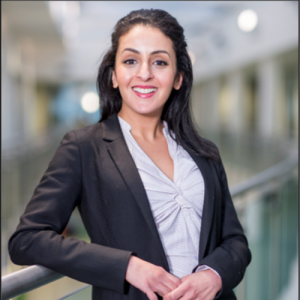 Saba Alzabin, Co-Founder, Nabta Health
Saba Alzabin, Co-Founder, Nabta Health
MB: What is your biggest challenge right now?
SA: For me, the biggest challenge will always be finding a sustainable and realistic mechanism to standardise healthcare, particularly for women. Whilst the MENA region is mostly unified in language and culture, there are extreme discrepancies in medical information, access and quality which vary dependent on socioeconomic factors. Unfortunately, politics and bureaucracy are major interventions in healthcare particularly in the region. This should not be the case, ever.
The hope is that the digital nature of our platform will allow the majority of women to access it. However, this still is not good enough because it will miss a significant number of women who need it the most.
MB: What is your vision for the future of your business?
SA: I would like to see Nabta become the vehicle that improves the health of every woman in the MENA, and to set the stage for others to follow suit and improve healthcare equity and access worldwide.
MB: What is your advice to other leaders who want to combine profit and purpose?
SA: Purpose is making a positive difference in something or to someone. When the UN defined the 17 Sustainable Development Goals (SDGs), they provided a framework for people to work together and targets to collectively aim towards. The SDGs can only be implemented with people making that difference together with conviction.
People invest in people, both mentally and materially. Your purpose will only bear fruit if you if you are humble, and when you observe, listen and be respectful to other people, their choices, efforts and differences.
________
Quickfire Questions
MB – What’s the best piece of advice you ever received?
SA – Treat others the way you want to be treated.
MB – Who inspires you?
SA – The Dalai Lama.
MB – How do you define success?
SA – Success is learning from your failures.
MB – What is something you wish you were better at?
SA – Sleeping early!
MB – What is the one book everyone should read?
SA – I can’t possibly choose one! I’ve recently re-familiarised myself with ‘On The Shortness of Life‘ by Lucius Seneca. It’s a short and extremely powerful read. A timeless resource on stoicism which reminds me not to waste time on anything that adds no value.
MB – What do you do to relax?
SA – Cook, go for a run or listen to BBC Radio 3’s Private Passions. 🙂
________
Discover the other MB100 leaders recognised for their work combining profit and purpose to help achieve the United Nations Sustainable Development Goals in 2020, here.


